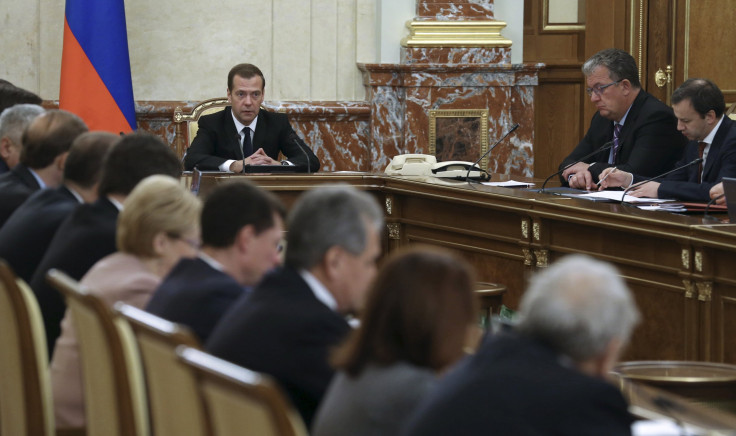As Turkey-Russia Spat Over Downed Jet Escalates, Kremlin Prepares To Sever Bilateral Economic Ties

UPDATED 9:45 a.m. EST: Russia will suspend visa-free travel agreement with Turkey, Russian Foreign Minister Sergei Lavrov said Friday. The action takes effect Jan. 1, the BBC reported.
Lavrov told the Associated Press the suspension is being imposed because Turkey has been reluctant to share information about its citizens involved in terrorist activity with Moscow.
Original post:
Russia is preparing to sever economic ties with Turkey even as the war of words between leaders of the two nations intensifies. While Russian President Vladimir Putin has demanded an apology from Turkey for the downing of a Russian Su-24 warplane over the Syrian border, his Turkish counterpart Recep Tayyip Erdoğan has steadfastly refused to do so.
“One gets the impression that the Turkish leaders are deliberately leading Russian-Turkish relations into a gridlock,” Putin said Thursday, warning Turkey of “serious consequences.”
Russian Prime Minister Dmitry Medvedev announced Thursday that government officials have been given two days to draw up a list of ways to curb economic ties and joint projects with Turkey. These restrictions might also apply to a multibillion-dollar deal to build a gas pipeline through Turkey, which was finalized in December 2014.
Restrictions against Turkey may include financial and commercial transactions and bans on Turkish business in Russia
— Dmitry Medvedev (@MedvedevRussiaE) November 26, 2015“The planned measures will be formalized within special regulations, most likely a Presidential executive order and a subsequent Government resolution,” Medvedev said, in a statement Thursday. “These documents will cover restrictions and bans on Turkish economic operations in Russia, restrictions and bans on Turkish imports, including agricultural products, on works and services provided in Russia by Turkish companies, and other measures.”
Also on Thursday, Russia began tightening controls on Turkish food imports, announcing that approximately 15 percent of those imports were not up to Russian food safety standards.
Earlier this year, after Europe imposed economic sanctions on Russia following its annexation of Crimea, Kremlin banned several European goods. This has pushed inflation in the country, which is already struggling to cope with soaring poverty levels, to a staggering 15.6 percent.
Given that Turkish vegetables account for 20 percent of Russia’s total supply, and that Ankara was planning to boost the volume of trade with Russia threefold to $100 billion by 2020, severing bilateral ties will not only hurt Russia, it would also impact Turkey’s economy, which is already reeling from months of political uncertainty.
“The same procedure may be applied to several investment projects, which were evidence of the high level of trust in our cooperation with Turkey. These agreements and investment projects could be suspended or terminated,” Medvedev said, in the statement.
Turkey is one of the largest buyers of Russia’s natural gas and oil. Russia is also building Turkey’s first nuclear power station, located in Mersin on the southern coast of the country -- a project that might be scrapped if Russia goes ahead with the economic sanctions.
“At the same time, we must clearly determine the measures that will be maximally effective without affecting Russian companies that cooperate with Turkish companies and partners,” Russian Economy Minister Alexei Ulyukayev said, in the statement.
© Copyright IBTimes 2024. All rights reserved.






















